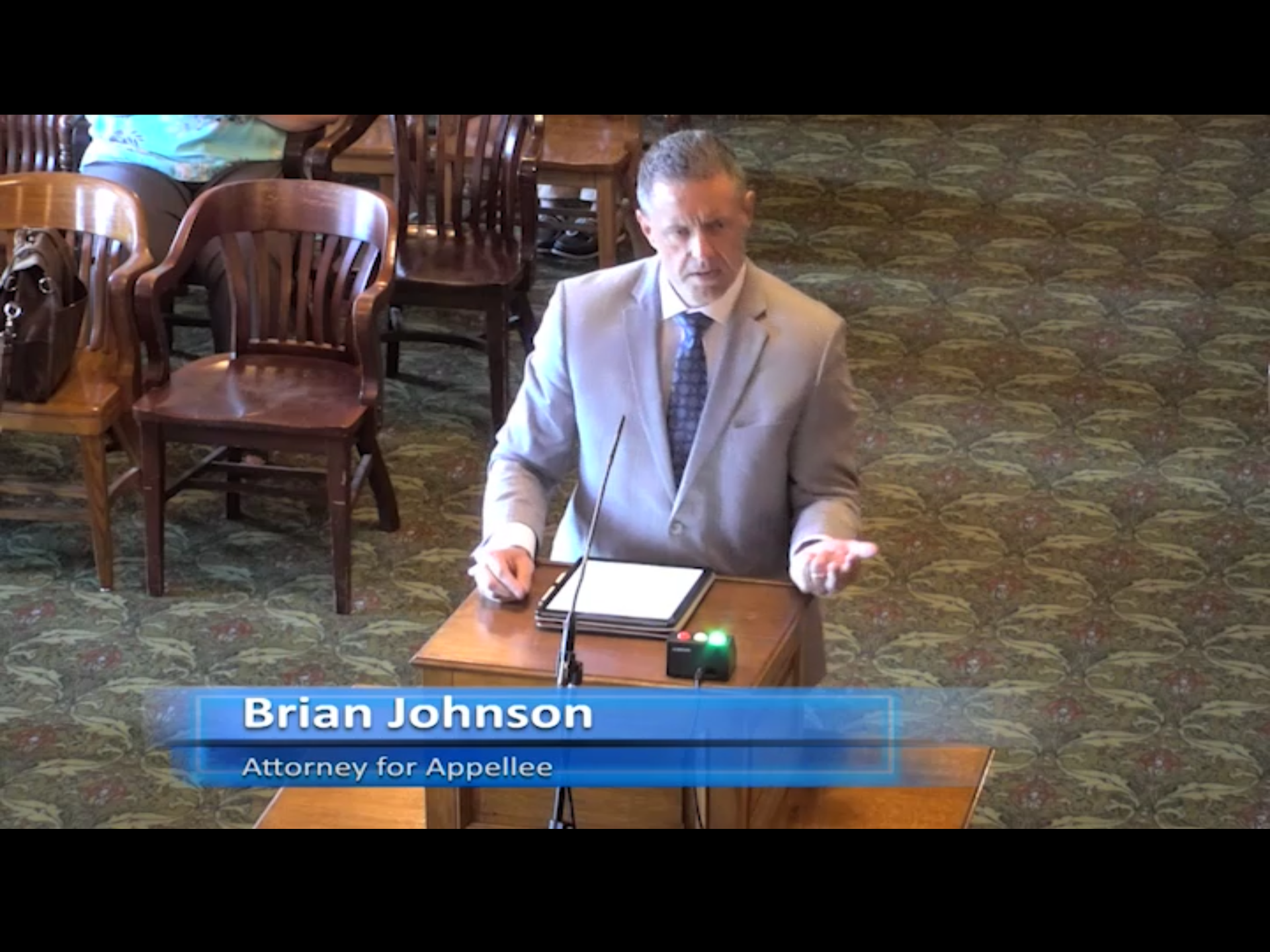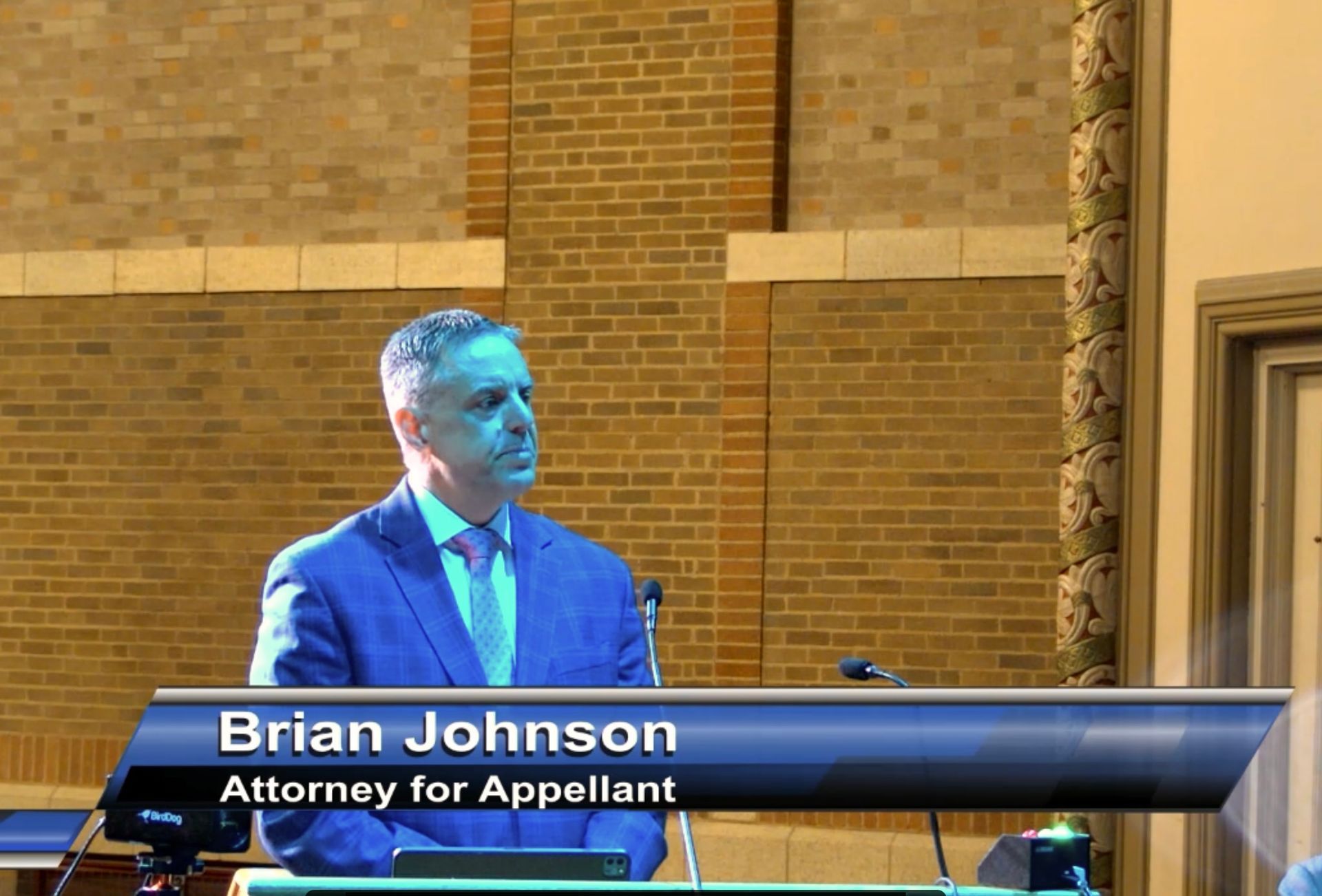Fighting for Your Second Chance After Conviction
Trial Advocacy vs. Appellate Advocacy: What’s the Difference—and Why It Matters for Your Case
When a criminal case ends in a conviction or unfair ruling, it may feel like the final word—but it doesn’t have to be. In Indiana, our legal system allows for appeals: a structured, high-level review of the trial court’s decisions to ensure they were legally sound and constitutionally fair. But appealing a case isn’t just asking a higher court to take a second look. It’s a complex, highly technical process governed by strict rules, intensive research, and razor-sharp written and oral advocacy.
As a criminal defense attorney who regularly argues before both the Indiana Court of Appeals and the Indiana Supreme Court, I know just how much work goes into a successful appeal—and how high the stakes are. This page will walk you through what makes appellate advocacy so challenging, how it differs from trial work, and what sets my practice apart. Whether you’re exploring your options or already facing a looming deadline, I invite you to learn more—and see for yourself what experienced appellate advocacy looks like in action.
What Is Appellate Advocacy?
Appellate advocacy happens after a verdict or judgment is entered in the trial court. If a legal error occurred—like improper jury instructions, an invalid search warrant, or a ruling that violated constitutional rights—an appeal may be appropriate.
Unlike a trial:
- There are no witnesses and no jury
- The court reviews only the existing record and legal arguments
- The key question almost always is: Did the trial court apply the law correctly?
The appeal is usually decided based on written briefs—but in some cases, the court sets the matter for oral argument, giving attorneys the opportunity to make their case in person and respond to questions from the judges.
Why Appeals Are So Challenging
Appealing a criminal conviction in Indiana is a complex, rigorous process that demands extraordinary attention to detail. Unlike a new trial, an appeal isn’t about presenting new evidence or re-telling your story – it’s a focused legal review of what happened in the trial court. Success on appeal requires the appellate attorney to comb through every aspect of the case and meet strict procedural standards. Even seemingly minor missteps can have major consequences, potentially costing you the appeal. Below are the key reasons appellate work is labor-intensive and why having an experienced Indiana appellate lawyer is so critical:
Thorough Review of the Trial Record
An appeal begins with a meticulous review of the entire trial record. This means reading through transcripts of every hearing and trial proceeding, examining all exhibits and evidence, and reviewing every motion and court ruling from your case. The record in a typical appeal can span hundreds or even thousands of pages, and the appellate attorney must scour it for any legal errors or issues that might warrant a reversal. In Indiana, the record on appeal is comprehensive – it includes the trial transcripts, relevant pleadings, and exhibits. Nothing can be added later, so your lawyer must identify all appealable issues from what’s already on record. This exhaustive fact-finding process is painstaking but crucial: if an important detail is overlooked in the record, a strong appellate issue could be missed. Being detail-oriented is not optional; cases can be won or lost on the details of the record.
Extensive Legal Research
Appellate advocacy also involves extensive legal research at every step. Once potential errors are spotted in the trial record, your attorney must research the law deeply to build arguments around those errors. This means delving into Indiana statutes, prior case precedents, constitutional provisions, and procedural rules that apply. Appellate lawyers spend long hours in legal databases ensuring they have a solid legal foundation for each argument. Every claim of error on appeal must be backed by persuasive authority – for example, pointing to previous Indiana Court of Appeals or Indiana Supreme Court decisions that support the argument. In fact, Indiana’s appellate rules require each contention in a brief to be supported by legal authority and references to the record. Crafting a winning appellate argument is an exercise in both creativity and thorough scholarship. The attorney must often synthesize complex case law into a clear, compelling argument that shows the trial court’s mistake and why it mattered. This level of research ensures that by the time a brief is filed, it’s fortified with the strongest possible legal support.
Detailed Appellate Brief Writing (and Reply Briefs)
Writing the appellate brief is one of the most labor-intensive parts of an appeal. An appellate brief is a comprehensive written document submitted to the higher court that explains the case’s facts and lays out the legal arguments for overturning the trial court’s decision. It is not a simple memo – it often involves multiple drafts and careful editing to meet exacting standards. The brief must be well-organized and highly detailed, including citations to the trial transcript and exhibits for every fact, and citations to legal authorities for every argument. Indiana’s appellate courts have specific formatting and content requirements for briefs, and the document can easily run dozens of pages. The process doesn’t end with the opening brief, either. After the appellant’s brief is filed, the State (as the appellee in a criminal case) will file its brief in response, arguing why the conviction should be upheld. The appellant’s attorney then often must write a reply brief to address the State’s arguments and reinforce the appellant’s position. Reply briefs are usually due on a tight deadline and require the attorney to critically analyze the State’s points and craft a succinct rebuttal. All of this writing must not only persuade on substance but also adhere to the appellate rules’ technical requirements. It’s a time-consuming writing process that demands clarity, precision, and persuasiveness – the brief is often the primary basis on which the appeals court will decide the case, especially since most of the appeal happens “on paper” rather than in person.
Strict Appellate Rules and No Margin for Error
Perhaps one of the most challenging aspects of appeals is the strict procedural rules that govern every step. The Indiana Rules of Appellate Procedure set forth exact guidelines for how to initiate and perfect an appeal, how to format briefs and appendices, and when each filing must be made. These rules are not mere suggestions – they are mandatory, and appellate courts enforce them rigorously. For example, an appellant generally must file a Notice of Appeal within 30 days of the trial court’s final judgment to even start an appeal. Missing that deadline or filing in the wrong court can forfeit your right to appeal entirely. Similarly, there are strict deadlines for filing briefs and preparing the record, and specific formatting rules down to requirements like margins, font size, and how citations must appear. Even the contents of the brief are regulated (for instance, every factual statement must cite the record, and legal arguments must include citations to authorities). Even small procedural errors can be devastating. If you fail to include a required document in the appendix or omit a necessary record citation, the appellate court can refuse to consider that part of your argument. In fact, Indiana appellate courts have held that when a brief lacks cogent arguments or proper citations to authority and the record, the arguments may be deemed waived, meaning the court will not address them at all. There is effectively no leniency for mistakes in this arena – even self-represented litigants are held to the same strict standards as attorneys and “must be prepared to accept the consequences” if they don’t follow the rules. In short, there is no margin for error. Every procedural step must be done correctly and every rule followed to the letter, or the appeal can falter before the court even reaches the merits of the case.
All of these factors make appellate work uniquely demanding. An appeal is not a second shot to simply re-argue the case – it’s a specialized process that requires skill, patience, and precision. The attorney must invest significant time and labor to ensure that the case is presented in the best possible light to the appellate judges. It’s an intensive endeavor: hours of transcript review, rigorous research, careful writing, and strict compliance checks. The upside of this high level of effort is that it gives the appeal the greatest chance of success. By fully understanding the trial record and expertly navigating Indiana’s appellate procedures, a seasoned appellate lawyer can pinpoint errors that affected your rights and articulate those issues in a way that resonates with the appeals court. This clear and methodical approach is crucial when seeking to overturn a conviction or sentence on appeal.
For a prospective client, it’s important to know why appeals are so challenging – and why having an attorney who regularly practices before the Indiana Court of Appeals and Indiana Supreme Court is invaluable. Appellate advocacy is truly a labor-intensive and detail-oriented art. With a dedicated appellate attorney handling your case, you can be confident that every relevant fact will be reviewed, every favorable law researched, and every rule strictly observed to protect your right to appeal. This level of diligence and focus is what it takes to tackle the appellate process and gives you the best chance at a successful outcome.
The Rarity and Challenge of Oral Appellate Advocacy
While thousands of appeals are filed annually in Indiana, only a small fraction are selected for oral argument. That means appearing for oral argument is a rare opportunity—and a serious responsibility. The judges have already read the briefs. They come prepared with hard questions. There’s no script, and the experience is markedly different from trial advocacy:
- Judicial Interaction: Unlike trials, where attorneys direct their arguments to a jury, appellate arguments are presented to a panel of judges who are well-versed in the case's details and the pertinent law.
- Dynamic Questioning: Judges often interrupt attorneys with probing questions, requiring quick thinking and a deep understanding of the case and broader legal principles.
- Legal Precision: The focus is on legal reasoning and the application of law, rather than factual disputes.
Experience in Appellate Advocacy
Having had the privilege to argue multiple cases before both the Indiana Court of Appeals and the Indiana Supreme Court, I've navigated the complexities and challenges inherent in appellate advocacy. These experiences have honed my skills in legal analysis, written and oral argumentation, and understanding the nuances of appellate procedure.
Witness Appellate Advocacy in Action
To truly grasp the distinctions between trial and appellate advocacy, I invite you to watch recordings of my oral arguments before Indiana's appellate courts. These sessions provide a window into the strategic thinking, legal reasoning, and dynamic interactions that define appellate practice.
Note: Access to these recordings is made possible through the Indiana judiciary's commitment to transparency and public education.
Oral argument before the Indiana Supreme Court, challenging the BMV and resulting in a decision that made it easier for people across Indiana to get relief from Lifetime drivers license suspensions. Click photo to watch.
Oral argument at Mishawaka High School as part of the Indiana Court of Appeals traveling "Appeals on Wheels." Argument over the validity of a search warrant, resulting in reversal of the trial court and subsequent dismissal of charges. Click photo to watch.
Looking for an Indiana Appellate Attorney?
Whether you’ve already been convicted or are facing a legal issue that requires appeal, you need someone who knows how to navigate this complex and high-level process.
As an an experienced criminal defense attorney in Indiana, I combine deep trial experience with a strong track record in appellate courts. I know what it takes to write persuasive briefs, argue effectively before a panel of judges, and fight for meaningful relief—even after a trial court has ruled.
Contact Me About Your Appeal
If you or a loved one needs help with a criminal appeal in Indiana, don’t wait. Appeals have strict deadlines, and the sooner we get started, the better your chances.
Call today or contact me online to schedule a consultation and discuss your options. Let’s talk about how I can help protect your rights and advocate for justice—at any stage of the case.



